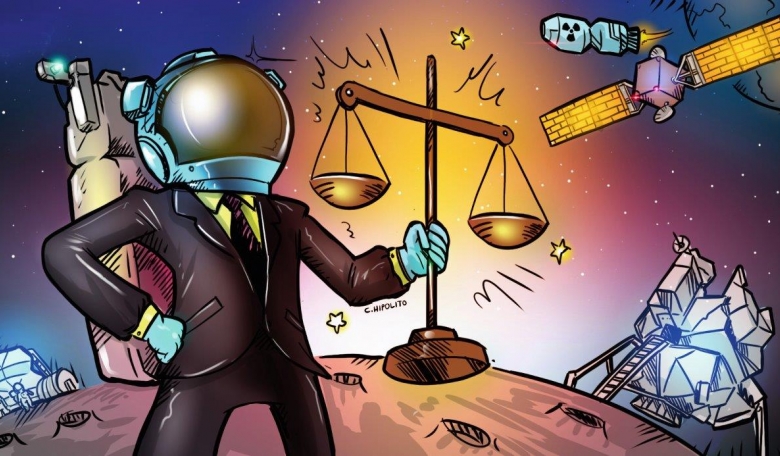With the world on war alert at present over the Russia-Ukraine crisis, the legal role of the nation state is suddenly very topical.
Writing in the latest issue of ROOM Space Journal, international lawyer Mark Beer looks at how it might work in the future when a country such as Asgardia and others operate in the realms of outer space.
“The more I thought about the concept of a modern nation-state, with clearly defined borders, boundaries and barriers to the movement of people and goods, the more I questioned whether that is the most effective structure in a world that is digitising,” he says.
Beer, a British lawyer based in London and co-founder of Seven Pillars Law, also too on the role of Minister of Justice for Asgardia the Space Nation in 2021.
“I became increasingly intrigued by the notion of an extraterritorial jurisdiction, a nation built outside of the classical border, boundary and barrier model, and it was this that led to my involvement with Asgardia,” he explained.
“While many still express scepticism, the recent flurry of space-related activities - combined with the de-globalising nature of the global economy and the need for a global response to issues such as pandemics - has caused others to look again at the functionality of the modern nation state and how the existing nation state model could be improved.”
With Morgan Stanley predicting that the current value of space-to-Earth business will increase from US $358 billion to $1 trillion by 2040, Beer believes most of this will be space-to-space business.
“That can’t thrive unless we have an ecosystem that protects investors and investments,” he says. “Thus we need to start thinking, from a legal point of view, about how we can build a safe and secure environment within which companies, governments and private individuals can operate with the protections they would expect on Earth.”
Mark Beer also explains his vision for Asgardia’s Ministry of Justice, how it will be created and his aspirations to create an online platform that could be open to the whole world to use to help resolve legal issues.
“Asgardia is not yet recognised around the world as a legal jurisdiction, but I think if we can successfully create a system focused on solving problems, and one which increases access to justice, we can offer those services throughout the world,” he added.
The full article can be read in the latest print issue of ROOM (A new legal system for space) or online at A new legal system for space. More details on Asgardia and how to become a resident can be found at: Asgardia the space nation











